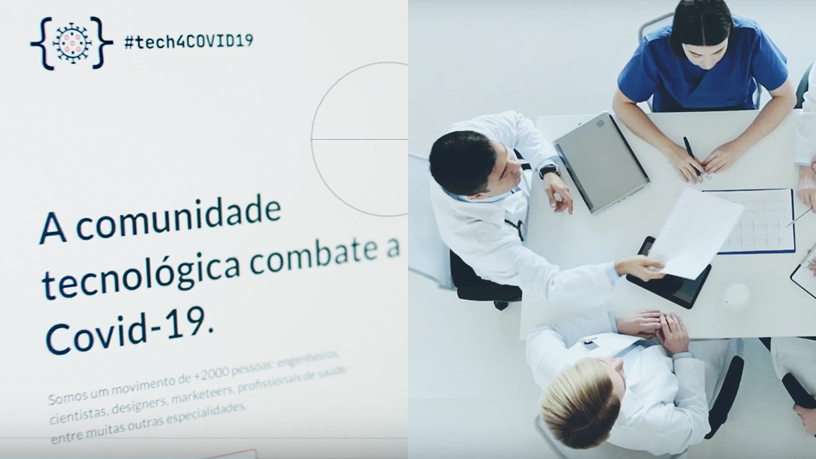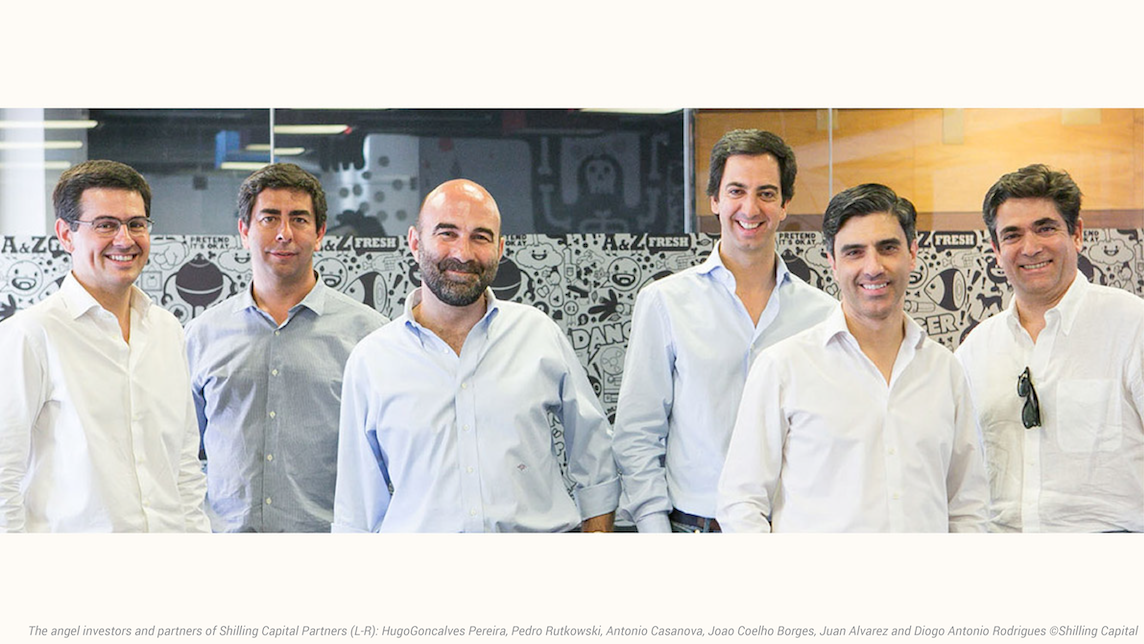With Portugal's economy expected to take a big knock from the effects of the Covid-19 pandemic, and with its tech startups facing falling revenues and increased funding difficulties, a new lifeline has been thrown to early-stage startups. The Portuguese government is financially helping social innovation startups and others it sees as strategically important in the post-pandemic recovery, especially those already carving an international niche in science and industry.
Co-investments worth up to €42m and €18m in new investment vehicles are being facilitated by the Portuguese government and distributed via state-owned investors PME Investimentos and Portugal Ventures, respectively.
The vehicle for boosting startups in the area of social innovation is the Social Innovation Fund (FIS in Portuguese). Created in 2018, it is only now being activated to protect startups working in areas deemed as having great importance in the current climate. Its remit is to support startups that promote employment, education or training, financial digital or social inclusion, or an active old age or improved health or welfare. All are objectives aligned with the UN's Sustainable Development Goals.
So why has the Portuguese government chosen this specific moment to start dispersing the FIS? Above all, given the current economic gloom, social innovation startups are especially vulnerable to failing. They tend to be less focused on profit-making in their early years compared with startups in the other sectors, and rely on the generosity of a public now facing high unemployment.
Even those that do actively seek profit and have a valuable business proposition may be years away from achieving economic viability and also risk going under at this time of credit crunch. Of the two FIS recipients announced to date, both are experiencing one of these predicaments.
Do-gooders' directory
FIS is managed by PME Investimentos and funded by both the EU Social Fund and the Portuguese government. It co-invests up to €2.5m per startup for up to 60% of the total investment for projects presenting innovative responses to societal problems in Portugal, or 70% in the case of companies yet to commercialize their product.
The fund has so far received 16 applications, totaling €18.4m in requested funding, although PME told media that the fund has around €42m to spend. Besides the offer of capital for applications ending in 2023, FIS will also offer bank-approved credits from May 2020 of to a maximum of €2.5m for up to 10 years to startups fulfilling the same social development objectives.
The first successful recipient of FIS, announced in early May, was AI-driven global NGO networking and information platform WeChangers, which received €1m in its first announced seed funding round. The platform offers a scrollable menu of hundreds of social impact projects and events by geographical location and entity, area of action and social development goal.
The platform enables non-governmental organizations or companies with similar goals to collaborate in common areas or resource-sharing. The Porto-based startup was founded only in 2019, though it had been in development by its co-founders Duarte Melo Ribeiro and Bernardo Jansen since 2016. The former worked on social entrepreneurial projects in his native Portugal, in Mozambique and in the Amazon, while the latter is a former consultant and project manager at companies including Microsoft.
Besides PME, the other entities participating in WeChangers' seed round with an undisclosed total investment are all entities whose remit is to back social impact investment: US-based BOMA Investments, London and New York-based Regenerative Investment and Bem Comun (Common Good), a €2.5m Portuguese venture capital fund focused on boosting employment.
Banking on agritech
The second startup to secure co-funding by PME is agritech Agroop for its big data-driven intelligent crop management solution, which secured a total investment of €682,000 from PME and unnamed private investors for market consolidation. The six-year-old startup founded by graphic designers Bruno Fonseca and Bruno Rodrigues had previously raised over €500,000 through five crowdfunding campaigns on Seedrs.
Agroop's aim is to sustainably increase crop productivity with more responsible management of water, land, pesticides and risk mitigation to meet the future challenge of global population pressure. The startup uses sensors and software leveraging big data to improve resource management. Portugal is one of Europe's biggest producers of agricultural products such as wine and olive oil, fruit and vegetables so the technology has a ready market on its doorstep.
PME Investimentos has also announced a relaxation in investment rules in order to boost startups financing. It has abolished the requirement of startups to find 20% of capital from new investors in order for the state investor to re-invest in the same company for its 200M co-investment fund. The fund has been an important national investor with up to €5m invested per startup, up to 100% of private investments matched and 11 companies benefitting since its creation – a total of €30m invested by 200M to date.
The creation of the fund was announced at the Web Summit in Lisbon in 2016 as a means of attracting foreign startups to Portugal. However, since its first co-investment in December 2018, only two of the startups it invested in to date were from abroad. The recipients have included online-to-offline printing platform, 360 imprimir (360 Onlineprint), which raised €18m in its Series B round in 2019 and doctors-focused community and information app TonicApp that recently raised €3.5m in its Series A round.
INNOvative funding tool
In the first week of May, state VC Portugal Ventures also announced the release of €18m in upcoming stand-alone government investment specifically aimed at ensuring the recovery of the national tech sector. The three initiatives, two of which are completely new, will see smaller sums of money than FIS handed out to potentially far more entities, mainly at the pre-seed and seed stages.
INNOV-ID is the name of a new government-funded investment vehicle worth a total €10m and aimed squarely at early-stage tech startups based anywhere in Portugal that already have an MVP but which have not yet commercialized. Applicants must be also be fewer than eight years old and registered on the Startup Hub online community hosted by Startup Portugal. This can include startups that have not yet been legally founded, such as research projects.
Here, the message from the government is loud and clear: its support of viable projects to compete internationally in terms of innovation, even if still at the idea stage. The application period lasts for only one month for the instrument, which is offering credits between €50,000 and €100,000. The program aims to attract science-based startups, a sector shown to be assuming increasing importance during the pandemic and its possible aftermath, and where Portugal enjoys a certain international acclaim.
INNOV-ID is also available to startups already based in tech or higher education-linked incubators, to startups based on academic or tech research, and to those offering highly-qualified positions.
Head-start opportunities
The second new funding vehicle announced by Portugal Ventures is Operation Follow-Ons, which aims to support up-and-running companies that have already attracted investment from other backers. The initiative has a total of €4.4m to hand out to tourism startups and €3m for digital engineering, manufacturing and life science startups with no specified maximum or minimum investment specified.
Again, the fund benefits market verticals where Portuguese startups have been successful internationally, with players such as Infraspeak, Jungle.ai and Prodsmart achieving international market traction and economic success of late.
There is no application process for Operation Follow-Ons because possible recipients must be put forward by Portugal Venture's partners. It applies to those with high growth potential that need extra liquidity to keep afloat and survive the pandemic and its aftermath.
The one recurring funding initiative announced by Portugal Ventures is the FIT Program, or Fostering Innovation in Tourism, run in conjunction with the state tourism agency. Besides offering funding of up to €100,000 per startup for a total €600,000 budget, FIT currently facilitates 40 incubators nationwide. In its first edition in 2019, three startups received funding from the program.














